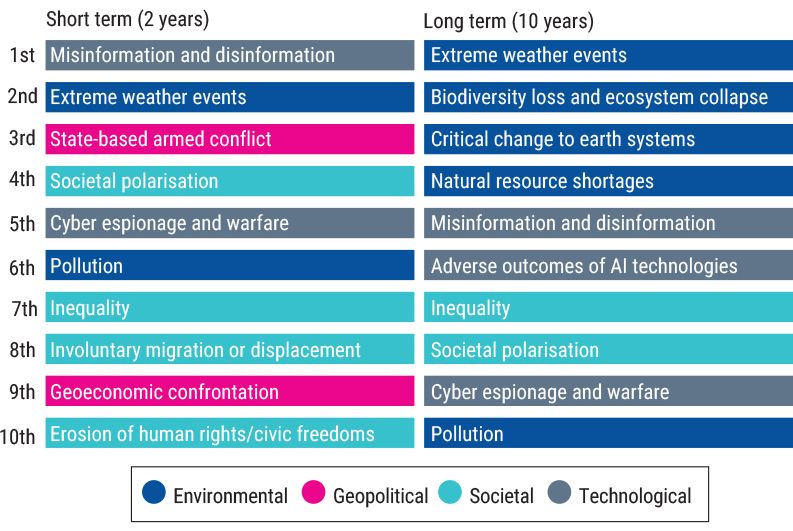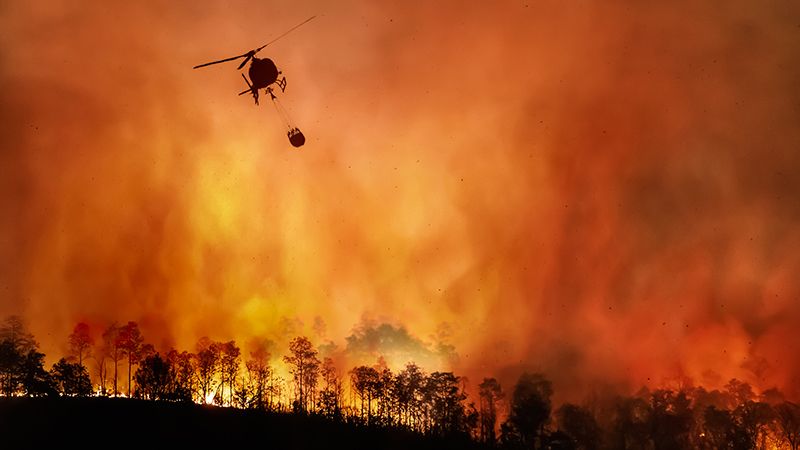The outlook for global risk is “bleak” in the near and long term, with environmental concerns accounting for half of the top 10 risks over the long term in the 20th Global Risks Report published by the World Economic Forum.
With 2024 being the hottest year on Earth since records began, extreme weather events remain front-of-mind at number two and number one in the two-year and 10-year outlooks respectively, with younger people and those in civil society most likely to categorise this as the most critical current risk of the immediate future. However, it was the top risk of the next decade for all stakeholder groups.
Pollution is seen as a more pressing short-term risk, and biodiversity loss and ecosystem collapse are perceived as a greater threat in the longer term.
Elsewhere, state-based armed conflict is now among the most immediately pressing material threats in 2025, a major change from just two years ago, with geopolitical tension leading to “one of the most divided times since the Cold War”.
Global risks ranked by severity

Based on the annual Global Risks Perception Survey, the report also found the overall view of global risks is more negatively weighted this year compared to last year. Some 52% of respondents expect some instability over the next year, while 31% anticipate greater turbulence and 5% foresee catastrophic risks in the short term, indicating growing pessimism.
The report sets the agenda for discussion at the World Economic Forum’s annual meeting in Davos, which takes place next week.
Solutions to address climate impacts ‘are within reach’
Gabrielle Bourret-Sicotte, chief evangelist and head of customer success at Treefera, noted the devastating Palisade Fires in Los Angeles “are just one example of the escalating intensity and frequency of climate impacts already causing significant harm to lives, economies and ecosystems worldwide”.
However, while the report paints a sobering picture, it also presents a crucial opportunity.
“This report is a chance to turn recognition into action. The Intergovernmental Panel on Climate Change has consistently emphasised the importance of investing in climate adaptation and mitigation. This includes mobilising resources to build climate-resilient infrastructure, adopting sustainable technologies and empowering communities to prepare for and recover from disasters.
“The solutions are within reach. It’s not just about planting more trees or reducing emissions; there must be greater access to tools that enable decarbonisation, reforestation and social remediation. Technologies like AI-driven satellite analytics and blockchain registration can identify where carbon offset projects will have the greatest impact, simplifying their implementation and scaling them effectively. This is a pivotal moment – global leaders and industries must seize it to drive the meaningful, tangible change our planet urgently needs.”








